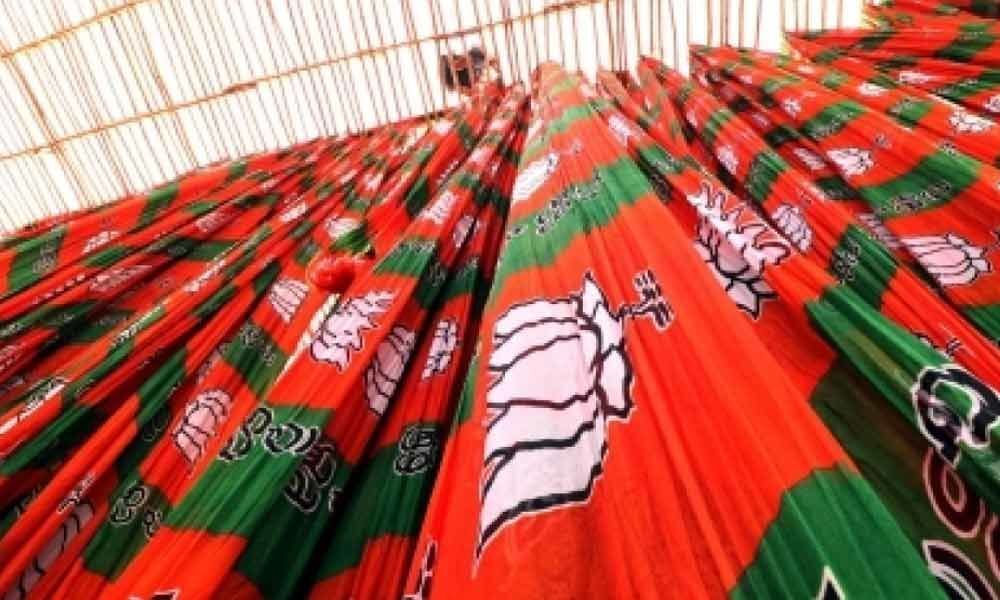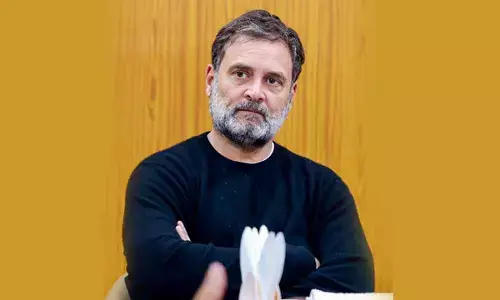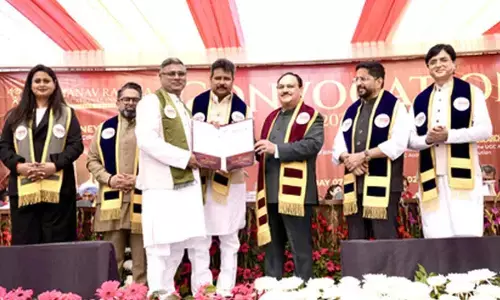An unsatisfactory week for BJP

The week when the polling began wasn't a good one for the Bharatiya Janata Party (BJP).
The week when the polling began wasn't a good one for the Bharatiya Janata Party (BJP).
For one, the party ran afoul of the Election Commission on Narendra Modis biopic and a TV channel named after the Prime Minister.
For another, the UP Chief Minister's differentiation between 'Bajrang Balis' or Hindus and 'Alis' or Muslims came under the commission's scrutiny.
This was the second time that Yogi Adityanath had referred to the two communities in such terms which carry a subtext of aggressive strength where the Hindus are concerned and of being aliens in the case of Muslims.
Topping these setbacks was the Supreme Court's decision to reopen the Rafale case. As the controversy about the aircraft drags on during the poll season, the BJP cannot but be on tenterhooks all the time as to what revelations may come out in the courts.
Already, the rejection of its claim that the 'stolen' documents presented to the courts about the deal by the petitioners lacks validity has shown the government in a poor light.
It is part and parcel of investigative journalism that the outing in the media of classified documents is based almost always on their acquisition by an intrepid journalist with the help of official 'sources'.
From this standpoint, all the celebrated revelations were based on 'stolen' documents, whether they were the Pentagon Papers, which showed that the US government 'systematically' lied on the Vietnam situation, or the Watergate scandal which led to President Richard Nixon's resignation.
While the impact of the Rafale affair will only be known over a fairly long period of time, the immediate focus will be on the ongoing poll process, especially on the performance of the Electronic Voting Machines (EVMs).
Already, there have been complaints from Andhra Pradesh and elsewhere about them, with Chief Minister N Chandrababu Naidu being particularly upset, presumably because of the seemingly stiff challenge which he is facing from the greenhorn challenger, Jaganmohan Reddy of the YSR Congress Party.
EVMs are a matter of pride for the country, for they have shown how quickly the voting process can be conducted and the promptness with which the results are announced when it takes days for the other countries to complete the entire exercise.
It is up to the Election Commission, therefore, to set at rest all the questions about their unreliability, especially when about 20-odd parties, including the 134-year-old Congress, want to get rid of the machines and return to the paper ballot system.
That would be a regressive step in view of the huge and growing interest in the dutiful exercise of one's franchise, which led to the polling continuing till midnight in some Andhra Pradesh constituencies.
What the high turnout ensures is that the outcome will be as fair as possible by ensuring that the exigencies of a division between two supposedly monolithic blocks will be less pronounced than in the case of fewer votes being cast.
As a result, the results will more closely reflect the ground realities, thereby demolishing overblown assertions.
Nowhere will this possibility be better tested than in UP, where the BJP has reportedly been drawing satisfaction from the Congress's ability to undercut the Samajwadi Party (SP)-Bahujan Samaj Party (BSP)-Rashtriya Lok Dal (RLD) combine.
However, if the Congress had gone along as a junior partner with the alliance, it would have been an artificial formation with a short shelf-life like that of the Janata Party of 1977.
Instead, a satisfactory turnout in UP is expected to provide an uncluttered picture of where exactly the four or five contestants stand.
Since this will be largely true nearly all over the country, the 2019 general elections are likely to provide a fairer picture of India's political scene than what the 2014 contest did with its heavy tilt in Narendra Modi's favour.
It is on the basis of the 'real' strength of the various parties as revealed by the outcome that they can formulate their future strategies.
The BJP will be among those which will have to return to its political drawing board to assess how it has fared in an election which did not see a 'wave' in its favour.
Will such a relook entail a reassessment of the party's hard-line nationalist agenda which envisages scrapping Articles 370 and 35A relating to Kashmir and introducing a citizenship Bill which excludes everyone except Hindus, Sikhs and Buddhists?
Will the Congress realise that it still has a long way to go, especially in the heartland States of UP and Bihar before it can aspire to enter the corridors of power in Delhi?
Will the regional parties come to terms with the fact that for all their local influence, they are destined to remain confined to their little bailiwicks, underlining the country's inbuilt linguistic and cultural divisions? Is this good for federalism?
The answers will be given in the coming weeks by the hundreds and thousands of ordinary people braving the sun to make their choices known.
(The writer is a political analyst. The views expressed are personal)











